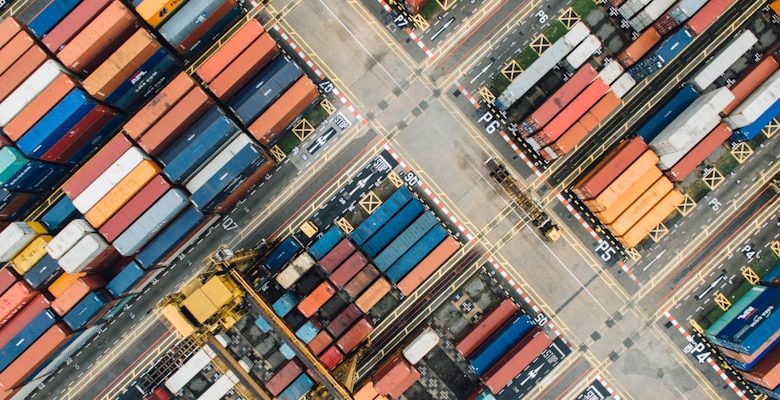The Impact of Decentralization on Supply Chain Management

- Understanding Decentralization in Supply Chain Management
- The Advantages and Disadvantages of Decentralization
- How Decentralization Impacts Communication in the Supply Chain
- The Role of Technology in Decentralized Supply Chain Management
- Case Studies: Successful Implementation of Decentralization in Supply Chains
- Challenges of Implementing Decentralization in Global Supply Chains
Understanding Decentralization in Supply Chain Management
Decentralization in supply chain management refers to the distribution of decision-making authority across various levels of an organization. This approach empowers individual units or departments to make decisions based on their local knowledge and expertise. By decentralizing decision-making, companies can respond more quickly to changing market conditions and customer demands.
One key benefit of decentralization in supply chain management is improved efficiency. When decision-making authority is dispersed throughout the organization, bottlenecks are reduced, and processes can be streamlined. This can lead to faster response times, reduced lead times, and ultimately lower costs for the company.
Another advantage of decentralization is increased flexibility. By allowing individual units to make decisions autonomously, companies can adapt more quickly to unforeseen circumstances. For example, if a supplier suddenly goes out of business, a decentralized supply chain management system may allow a local team to quickly find an alternative source of supply without having to wait for approval from upper management.
However, decentralization is not without its challenges. One potential downside is a lack of coordination between different parts of the organization. Without a centralized decision-making body, it can be difficult to ensure that all units are working towards the same goals. Communication and collaboration become crucial in a decentralized supply chain management system to avoid silos and ensure alignment.
In conclusion, decentralization can have a significant impact on supply chain management. By empowering local teams to make decisions, companies can improve efficiency, flexibility, and responsiveness. However, it is essential to strike a balance between decentralization and centralization to ensure effective coordination and alignment across the organization.
The Advantages and Disadvantages of Decentralization
Decentralization in supply chain management comes with its own set of advantages and disadvantages. Let’s explore some of these below:
-
Advantages
- Increased efficiency: Decentralization can lead to quicker decision-making processes, as decisions can be made at a lower level of the organization without needing approval from higher-ups.
- Enhanced flexibility: With decision-making power dispersed across various levels, supply chains can adapt more easily to changes in the market or disruptions in the system.
- Improved customer service: Decentralization can result in quicker responses to customer needs and preferences, leading to higher satisfaction levels.
- Empowered employees: Giving employees more autonomy can boost morale and motivation, leading to higher productivity levels.
- Reduced costs: By eliminating layers of management and bureaucracy, decentralization can lead to cost savings in the long run.
-
Disadvantages
- Coordination challenges: Decentralization can make it harder to coordinate activities across different parts of the supply chain, leading to inefficiencies and delays.
- Lack of standardization: Different units operating independently may lead to inconsistencies in processes and quality standards.
- Risk of information silos: Without proper communication channels, crucial information may not flow freely between different parts of the supply chain, leading to misunderstandings and errors.
- Loss of economies of scale: Centralized operations may be more cost-effective in certain situations, especially when it comes to bulk purchasing or shared resources.
- Difficulty in decision-making: In some cases, decentralization can lead to conflicting priorities and lack of strategic alignment across the supply chain.
In conclusion, while decentralization can offer benefits such as increased efficiency and flexibility, it also comes with challenges like coordination issues and lack of standardization. Supply chain managers need to carefully weigh these pros and cons to determine the best approach for their specific circumstances.
How Decentralization Impacts Communication in the Supply Chain
Decentralization in supply chain management has a significant impact on communication within the supply chain. By distributing decision-making authority across various nodes in the supply chain network, communication becomes more efficient and effective. This is because each node has the autonomy to make decisions based on real-time information, leading to quicker responses to changes or disruptions in the supply chain.
Improved communication in a decentralized supply chain also leads to better coordination between different parties involved in the supply chain. Suppliers, manufacturers, distributors, and retailers can communicate directly with each other, eliminating the need for information to flow through a central authority. This direct communication streamlines the supply chain processes and reduces the chances of misinterpretation or delays in information transfer.
Furthermore, decentralization fosters transparency in the supply chain, as each node has visibility into the decisions and actions of other nodes. This transparency promotes trust among the parties involved and enables them to collaborate more effectively. By sharing information openly, issues can be identified and resolved quickly, preventing bottlenecks and improving overall supply chain performance.
The Role of Technology in Decentralized Supply Chain Management
Technology plays a crucial role in decentralized supply chain management, enabling organizations to efficiently coordinate operations across multiple nodes. By leveraging digital tools and platforms, companies can streamline communication, data sharing, and decision-making processes.
One key aspect of technology in decentralized supply chain management is the use of blockchain technology. Blockchain provides a secure and transparent way to record transactions and track products as they move through the supply chain. This helps to ensure trust and visibility among all participants in the network.
Another important technology in decentralized supply chain management is the Internet of Things (IoT). IoT devices can be used to collect real-time data on inventory levels, product conditions, and transportation routes. This data can then be analyzed to optimize operations and identify areas for improvement.
Additionally, artificial intelligence (AI) and machine learning algorithms can be applied to forecast demand, automate repetitive tasks, and identify patterns in supply chain data. These technologies help organizations make more informed decisions and respond quickly to changes in the market.
Case Studies: Successful Implementation of Decentralization in Supply Chains
Several case studies have highlighted the successful implementation of decentralization in supply chains, showcasing the positive impact it can have on supply chain management. These real-world examples demonstrate how decentralized decision-making processes can lead to greater efficiency, flexibility, and responsiveness in the supply chain.
One such case study involved a global consumer goods company that decentralized its supply chain operations to better serve local markets. By empowering regional managers to make decisions based on local demand and supply conditions, the company was able to reduce lead times, minimize stockouts, and improve overall customer satisfaction.
Another case study focused on a logistics company that implemented a decentralized approach to inventory management. By allowing each warehouse to independently manage its inventory levels based on local demand patterns, the company was able to optimize stock levels, reduce warehousing costs, and improve order fulfillment rates.
Overall, these case studies illustrate the benefits of decentralization in improving supply chain performance. By empowering local decision-makers and aligning incentives with business objectives, companies can achieve a more agile and resilient supply chain that is better equipped to navigate today’s complex and volatile business environment.
Challenges of Implementing Decentralization in Global Supply Chains
Implementing decentralization in global supply chains presents several challenges that organizations need to address. One of the main challenges is the complexity of managing multiple nodes and partners across different regions. Coordinating activities and ensuring seamless communication can be difficult when operations are spread out geographically.
Another challenge is the increased risk of disruptions in the supply chain. With decentralization, there are more points of failure, making it harder to identify and mitigate risks. This can lead to delays in production, increased costs, and ultimately, dissatisfied customers.
Furthermore, implementing decentralization requires significant investment in technology and infrastructure. Organizations need to upgrade their systems to enable real-time visibility and data sharing across the supply chain. This can be costly and time-consuming, especially for smaller companies with limited resources.
In addition, cultural differences and varying regulations in different regions can pose challenges when implementing decentralization. Organizations need to navigate these complexities to ensure compliance and operational efficiency.
Overall, while decentralization can offer benefits such as increased agility and flexibility, organizations must carefully consider and address the challenges that come with implementing this supply chain strategy.



